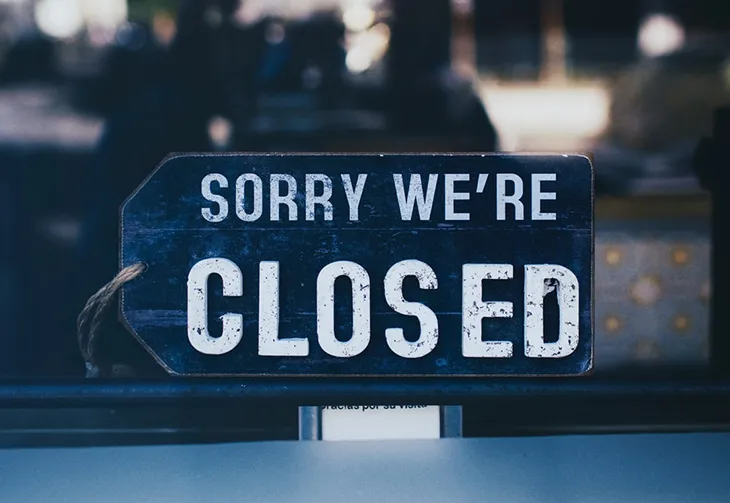NEW YORK — Expect the pace of store closures to pick up this year, thanks to the lingering effects of the COVID-19 pandemic. That’s the forecast from the 2020 US Store Closures Outlook report released on Tuesday by Coresight Research.
The report updates Coresight Research’s previous estimate to reflect the impact of the coronavirus on the U.S. economy.
U.S. retail store closures are now expected to come in between 20,000 and 25,000 in 2020, the report estimates. Those numbers will be partially offset by store openings. Even so, the 22,500 midpoint of that range represents a significant uplift from Coresight’s previous estimate of up to 15,000 closures (gross). The report also predicts that:
- Approximately 55–60% of all store closures will be mall-based.
- Bankruptcy filings among US retailers will spike this year, and Chapter 7 filings may rise.
- The coronavirus outbreak could accelerate a correction in mall space that already looks overdue.
Coresight Research notes that U.S. store closures so far this year have totaled 4,005. That is behind the pace set at the same time last year, according to the report, which stated that there were a record 9,821 store closures in the United States in 2019.
“We do not expect the year-to-date trends to be representative of the full-year pattern for store closures,” the report states. “The total year-to-date permanent store closures in 2020 are currently significantly lower than this time in 2019, but we predict that there will be a major uptick onthe back of discretionary demand levels being below normal.”
The report also anticipates an uptick in Chapter 11 and Chapter 7 filings by retail companies.
“We expect to see a spate of bankruptcies this year, as the debilitating impact of the coronavirus on sales will likely quell hopes of survival for
a number of struggling retailers—especially debt-laden retailers,” the report states. “Moreover, we may see more retailers go straight to Chapter 7, wherein companies liquidate their assets.
“In normal circumstances, struggling retailers tend to file for Chapter 11 bankruptcy protection, in order to continue operating by restructuring their debt. This kind of bankruptcy filing typically spans several months, and companies need access to credit in the interim. However, when there is a credit crunch, these retailers will find it more challenging to obtain funding and may have no other resort but to file for Chapter 7 bankruptcy. In this extraordinary time of crisis brought about by the coronavirus, the latter scenario may become the new norm.”






